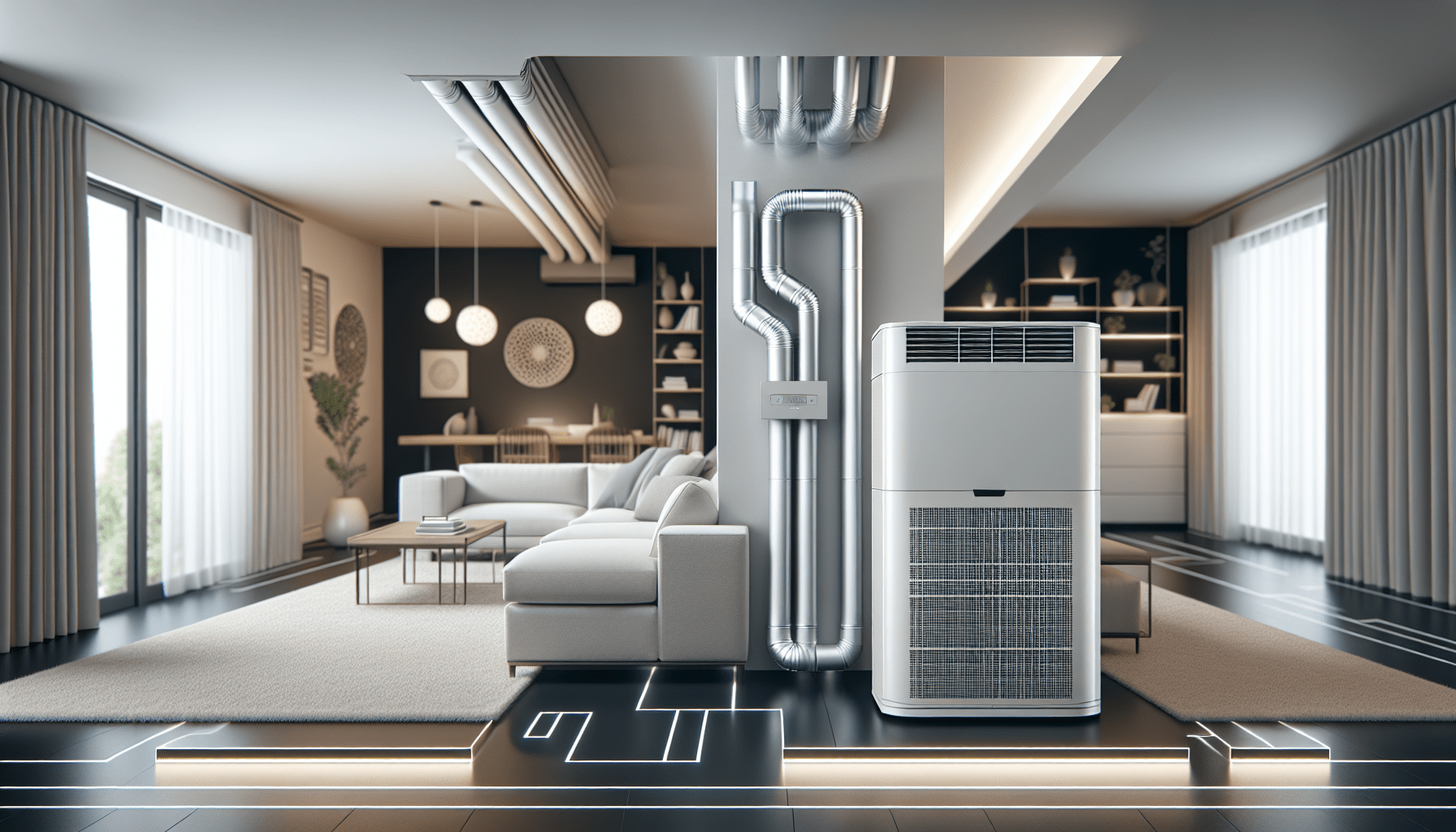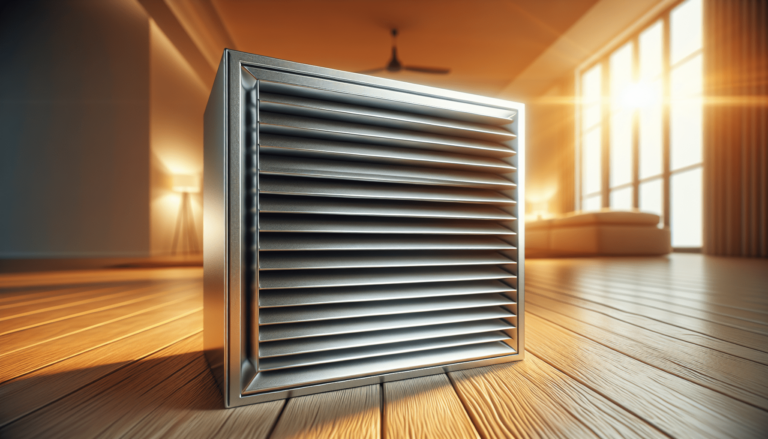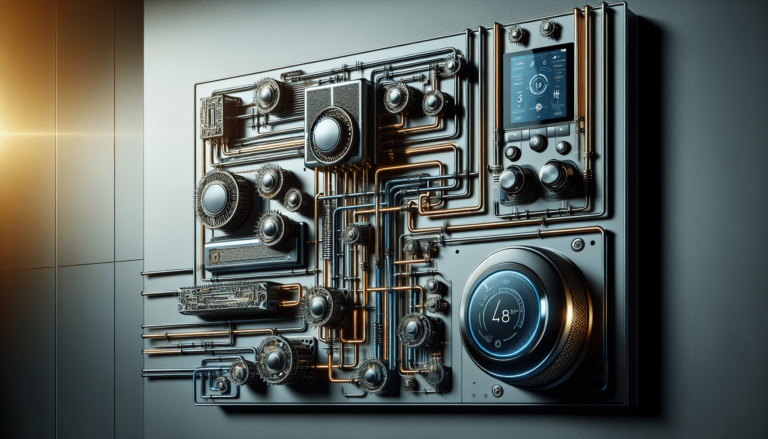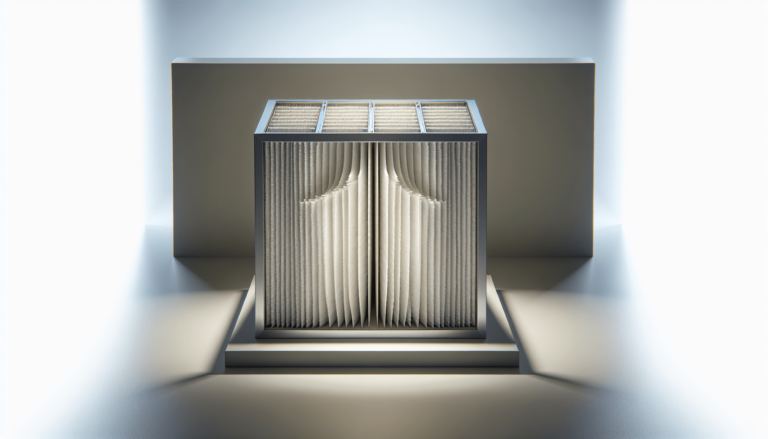

HVAC Services
Get Professional Repairs From The Area's Trusted HVAC Technicians. Ask About Our Services! We Offer Professional Heating & Cooling System Repairs And Guarantee Long-Lasting Results.
Got Question? Call us: (850) 678-2665Financing
Ensuring Safe HVAC Operation: Top Tips
Discover essential tips for safe HVAC operation, from regular maintenance to troubleshooting. Keep your home comfortable and efficient without a drama-laden meltdown.

Have you ever wondered if your HVAC system is operating safely in your home? Maintaining safe operation of your HVAC system is crucial, not only for the efficiency of the machine but for your comfort and health. You might not think about your HVAC system until something goes wrong, leading to discomfort and, at times, unexpected expenses. But don’t worry, ensuring your system operates safely is not as daunting as it might seem. Let’s discuss some practical tips that will help you keep your HVAC system running smoothly.

Understanding Your HVAC System
Your HVAC system, which stands for Heating, Ventilation, and Air Conditioning, plays a pivotal role in your home’s comfort. Just like how you wouldn’t drive a car without first knowing the basics, it helps to have a rudimentary understanding of your HVAC system. At its core, it functions to regulate indoor climate and ensure air quality.
Components of an HVAC System
The system consists of several components, including a furnace, an air conditioner, ducts, and a thermostat. Each part works in harmony to provide you with a comfortable indoor environment. Understanding what each component does can help you identify issues when things don’t feel quite right.
Furnace
The furnace generates heat. It uses either fuel or electricity to produce warm air, which is circulated throughout your home. If you have ever walked into a room and thought it felt like a cozy hug, you have the furnace to thank for that.
Air Conditioner
In contrast, the air conditioner cools the air. It removes heat from indoor air and transfers it outside, leaving your space cooler and more refreshing. It’s the reason why your summer days spent indoors are bearable.
Ducts
Ducts are pathways through which air travels from your system to the different areas of your home. Picture them as the veins of the HVAC system. Clean and sealed ducts are essential for an efficient system, ensuring that air reaches you without unnecessary losses.
Thermostat
The thermostat is the control center. It lets you set your desired temperature, adjusting the system’s operations accordingly. It’s that tiny device on the wall that can stop family members from bickering over the temperature.
Regular Maintenance
An ounce of prevention is worth a pound of cure, and this rings especially true for HVAC systems. Regular maintenance keeps things running efficiently and safely.
Schedule Routine Inspections
Schedule inspections twice a year, ideally, in spring and fall. Such routine checks can preemptively address potential issues before they escalate into costly repairs. In fact, it’s akin to going to the doctor for an annual physical – maintain now to prevent issues later.
Clean or Replace Filters
Dirty filters can obstruct airflow, causing the system to work harder, leading to overheating or failure. Aim to check and replace filters every three months. You wouldn’t run a marathon in ski boots, would you? Clean filters allow for smooth airflow, much like sneakers allow for a smoother run.
Steps to Replace Filters
- Turn Off the system.
- Locate the filter compartment.
- Remove the old filter.
- Install a new filter, following the arrows that indicate airflow direction.
- Turn On the system.
Keep Vent Openings Clear
Vent blockages can strain your system, reducing efficiency. Ensure that furniture, curtains, or other objects do not obstruct air vents. Think of it as ensuring that your winter jacket zipper is unblocked and works smoothly.
Safety Tips
Safety is an integral part of ensuring optimal operation. Neglecting safety can lead to hazardous situations, so it’s essential to remain vigilant.
Regular Checkups for Gas Leaks
If your system uses natural gas, regularly check for leaks. A foul odor often signals a gas leak. If you smell suspect gas, turn the system off and contact a professional immediately. Better to make that call and be safe than to walk into a situation that has you wishing you lived elsewhere.
Secure Electrical Connections
Loose electrical connections can lead to outages or even fires. Inspect connections quarterly to ensure everything is secure. Just like you wouldn’t leave a loose plug halfway in the socket, ensure these connections are snug.
Clean Around Units
Whether indoor or outdoor, ensure that you routinely clean around your units. Remove debris, dust, and ensure no overgrown plants block outdoor units. A clear space is your system’s best friend, easing operation and preventing potential hazards.
Professional Services
Sometimes it’s best to call in the cavalry. Whether for routine maintenance or unexpected repairs, a professional HVAC service ensures that everything runs safely.
Hire Certified Technicians
Look for certified, experienced technicians to carry out maintenance or repairs. HVAC systems are complex, and proper handling by a trained professional guarantees efficiency and safety.
Save Emergency Contacts
Keep a list of contact details for HVAC services handy. In urgent moments, knowing who to call can make all the difference. Print it out, put it on your fridge, and you might be congratulating yourself during times of need!
Consider Service Plans
Many HVAC companies, such as Tempacure Heating and Air Conditioning, offer service plans. These plans often include regular maintenance, ensuring your system stays in top form.

Budget Planning
Safe maintenance doesn’t have to break the bank. With proper budgeting, you can ensure your HVAC system operates without financial strain.
Allocate for Maintenance Costs
Just as you Budget for groceries and utilities, set aside funds for HVAC care. Maintenance costs are lower than repairs, and planning for them prevents unwelcome surprises.
Energy Efficiency Upgrades
Consider Upgrading to more energy-efficient components. These may have a higher upfront cost, but they will reduce energy bills in the long run. It’s like buying a fuel-efficient car; you’ll save in the long run.
Potential Energy-Efficient Upgrades:
| Component | Upgrade Benefits |
|---|---|
| Furnace | Improved heating efficiency, lower energy use |
| Thermostat | Smart thermostats can save energy by learning your schedule |
| AC Units | Higher SEER ratings save on cooling costs |
Troubleshooting Common Issues
Sometimes, issues may arise despite your best efforts. But fear not; some problems can be addressed on your own.
Inconsistent Temperature
If some rooms aren’t reaching desired temperatures, check for blocked vents or ducts. Inspect to ensure doors or windows aren’t letting in drafts. Seal or fix any gaps you find – it’ll be worth your while.
Unusual Noises
Rattles or hums may indicate something is amiss. Loose components or debris could cause these noises. Schedule a professional check if tightening screws or removing debris doesn’t solve the issue.
Weak Airflow
This could stem from a dirty filter or blocked ducts. Cleaning or replacing filters often resolves the problem. Sometimes, it can be due to fan issues; in such cases, a professional’s input becomes essential.
Preparing for Extreme Weather
Your HVAC system will face challenges during extreme weather, be it summer or winter. Giving it some support can help it rise to the occasion.
Summer Precautions
Ensure that the area around outdoor units is clear of debris. Opt for shade over your unit, if possible, to improve efficiency. Maintaining a reasonable indoor temperature, instead of the lowest possible, can lessen the strain on your system.
Winter Precautions
Winter often means closely monitoring Heating components. Clear ice or snow buildup around the unit’s exterior to ensure it can intake air properly. On particularly cold days, a small heater in chilling rooms can reduce the workload on your system.
Conclusion
Keeping your HVAC system running safely requires regular maintenance, a proactive approach to safety, professional support, smart budgeting, and timely troubleshooting. With attention and care, you can ensure that your system works efficiently and reliably, providing a comfortable, safe environment for you and your family. And remember, for any questions or concerns regarding your HVAC needs, Tempacure Heating and Air Conditioning is there to provide assistance that combines expertise with a friendly touch. Feel free to reach out using their contact details:
Tempacure Heating and Air Conditioning
325 Cedar Ave S
Suite B
Niceville, FL 32578
(850) 678-2665
Tempacure HVAC Website
Having taken steps towards understanding and maintaining your HVAC system, you’ve paved the way for comfort and safety in every season.







